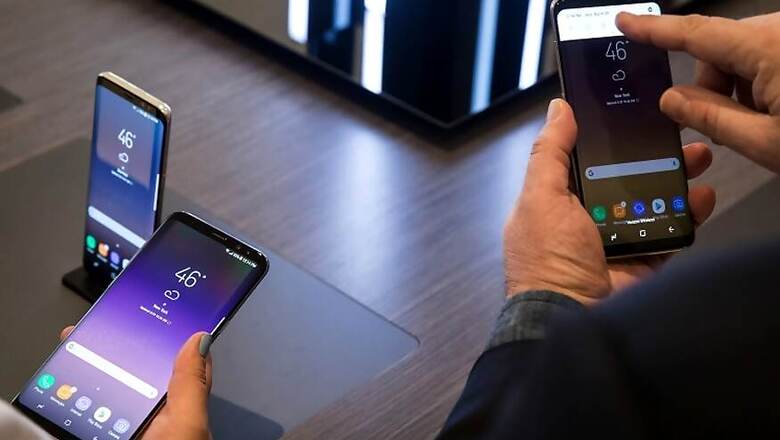
views
Google has reportedly been working at a way to make information sharing easier on its ecosystem, and its answer to the issue is Fast Share. Named in a rather literal way, initial reports of Google Fast Share working on devices running Android Q beta make the feature sound mighty similar to Apple's AirDrop. However, contrary to AirDrop working only across Apple's own operating systems, reports seem to suggest that Fast Share would be compatible with iOS devices as well.
The feature works in a very similar way as AirDrop, wherein the option to enable it appears in the floating share menu that opens up when a user wishes to transfer a file. Selecting it enables Bluetooth and location sensors, which detects compatible devices within its proximity. Tapping on the target device provides a prompt on the recipient device, along with the device name and connection ID of the sender device in order to reinstate security standards. Screenshots uploaded by 9to5Google also indicate that in addition to AirDrop's functionalities, Fast Share will also allow users to mark favourite devices as recipients, which should make future file transfers seamless.
According to the feature description, Fast Share can be used to share even URLs and snippets of text, alongside files. Interestingly, Google has included varying form factor devices from across the Android ecosystem, Chrome OS, Wear OS and even iOS as compatible devices for the feature. This might also be a very early precursor feature building up to Google's anticipated unification of all of its operating systems, which is what even Microsoft is suspected to be building.
While it may not dramatically alter the file sharing experience on Android devices, given that Bluetooth transfer has typically worked smoothly enough, Fast Share can be useful in terms of speeding up transfers across different operating systems, thereby making Android and Google's other devices even better in terms of diversity. That said, there is no word in terms of when Google intends to roll out Fast Share, although it is likely to premiere alongside Android Q.












Comments
0 comment